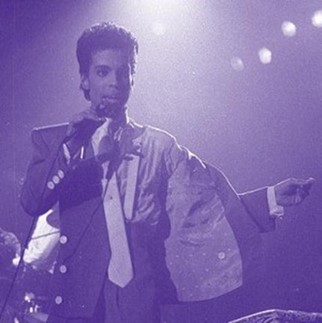
“I am looking for authors with a distinctive voice.” [on an agent’s website]
“Great premise but I couldn’t connect with the writer’s voice.” [publisher’s rejection]
“The voice isn’t strong enough in the first ten pages to make me keep reading.” [agent rejection letter]
So what do editors mean by “voice” when they talk about the craft of writing?
Voice is the individual writing style of an author. It’s the way a narrator tells their story. When you put yourself into words it’s your personality on paper.
Ouch. Does this mean the editor doesn’t like you?
Not exactly. Criticisms of your voice, or the lack thereof, suggests you think about the way in which you express yourself in writing. Let your distinct personality, perspective, or world-view shine in your prose. Too often writers try to write in a manner so bland as to offend no one. It ends up sounding like something written by a committee instead of a real person. Or some try too hard to sound like an author whom they admire, and it feels derivative and inauthentic.
 Thinking about your voice means gaining a new critical self-awareness of how you sound to others (on the page). This is never easy or comfortable. And this feeling extends to our embodied voice and the discomfort and distortion we feel when listening to a recording of our own voice.
Thinking about your voice means gaining a new critical self-awareness of how you sound to others (on the page). This is never easy or comfortable. And this feeling extends to our embodied voice and the discomfort and distortion we feel when listening to a recording of our own voice.
In a recent survey of 1,500 people, half said hearing their recorded voice was so harmful to their mental well-being that they would change it if they could.
It is easy to be dismissive or derogatory of your voice because you can’t “hear” it the way your readers hear it in your writing, and when you do, it might seem like a distortion. This can be disorienting at first, but I hope the noise fades, and you can focus on the acoustics of your author voice.
If you were a musician instead of a writer, performing a piece note-for-note with perfect pitch in synch with a metronome isn’t enough to awe listeners. If it lacks expression, the performance is mediocre. Making the song your own is what distinguishes the rock star from the karaoke singer.
 Even though the basic melody is the same, Prince’s song Purple Rain sounds entirely different when sung by Tom Jones, LeAnn Rimes, Bruce Springsteen, and Etta James. Each of these singers has a distinctive voice which is different from the one belonging only to the Purple One.
Even though the basic melody is the same, Prince’s song Purple Rain sounds entirely different when sung by Tom Jones, LeAnn Rimes, Bruce Springsteen, and Etta James. Each of these singers has a distinctive voice which is different from the one belonging only to the Purple One.
Even though they write about family, the voices of Jane Smiley, Garrison Keillor, David Sedaris, Terry Tempest Williams, Frank McCourt, and Mary Karr are each distinctive. You would not mistake one writer for another. In fact, you could probably identify their voice from a single page of something they’ve written.
A strong, clear, well-defined voice is the glue that binds together your intended meanings to the ideas, feelings, and intentions of your words. It helps your readers “hear” you: they understand who you are, and it engages them in your story.
Voice is about honesty. It’s about putting your authentic self out there and having the courage to express who you really are. It’s risky to make yourself vulnerable. A risk worth taking.
Voice isn’t something you learn. It isn’t something you can copy. It’s something you find within yourself. Listen to that inner voice in your head. That’s the one you want to tap into and capture on the page.
 Voice isn’t found by overwriting. Going over the same passage and fretting about word choices or grammatical structure won’t help. It can’t be found when using purple prose. Don’t use fifty cent words when nickel words will do. Ornate, flowery, or melodramatic language draws excessive attention to the writing and distracts from the substance of what you’re trying to communicate. Purple prose is characterized by the abuse of adjectives, adverbs, zombie nouns, and metaphors. Don’t try to “sound” writerly. Be natural, not contrived. Your voice is like the fingerprint of your writing. It must be unique to you and you alone. Voice is more likely recognized in your raw and unfiltered writing than prose you have packaged for an audience.
Voice isn’t found by overwriting. Going over the same passage and fretting about word choices or grammatical structure won’t help. It can’t be found when using purple prose. Don’t use fifty cent words when nickel words will do. Ornate, flowery, or melodramatic language draws excessive attention to the writing and distracts from the substance of what you’re trying to communicate. Purple prose is characterized by the abuse of adjectives, adverbs, zombie nouns, and metaphors. Don’t try to “sound” writerly. Be natural, not contrived. Your voice is like the fingerprint of your writing. It must be unique to you and you alone. Voice is more likely recognized in your raw and unfiltered writing than prose you have packaged for an audience.
So how do you find your voice? It’s not lost. It’s inside you. Look deep. Deeper than the self you present to others. That inner self filled with shame, self-loathing, doubt, pain, guilt. That vulnerable self you rarely reveal during even the most intense psychotherapy sessions. That self.
Let yourself speak and write with passion. Your ideas, beliefs, opinions, attitudes, and emotions intertwine in the articulation of your writing voice.
